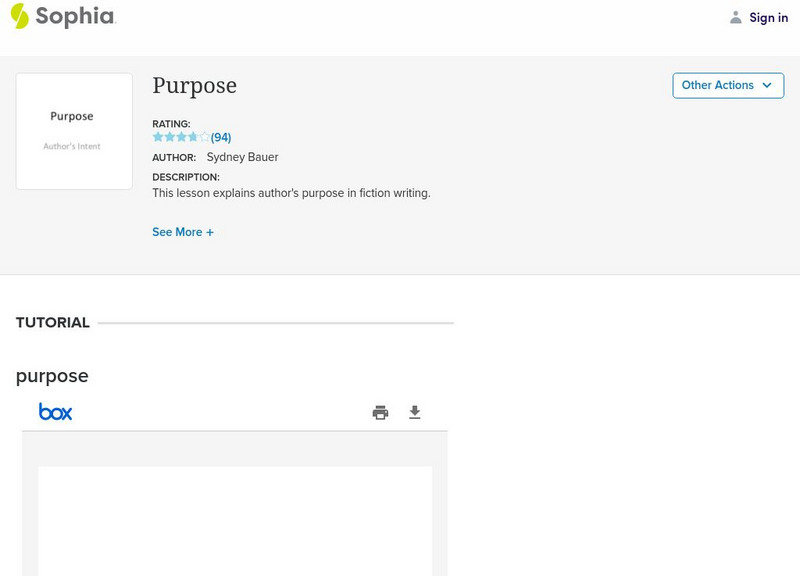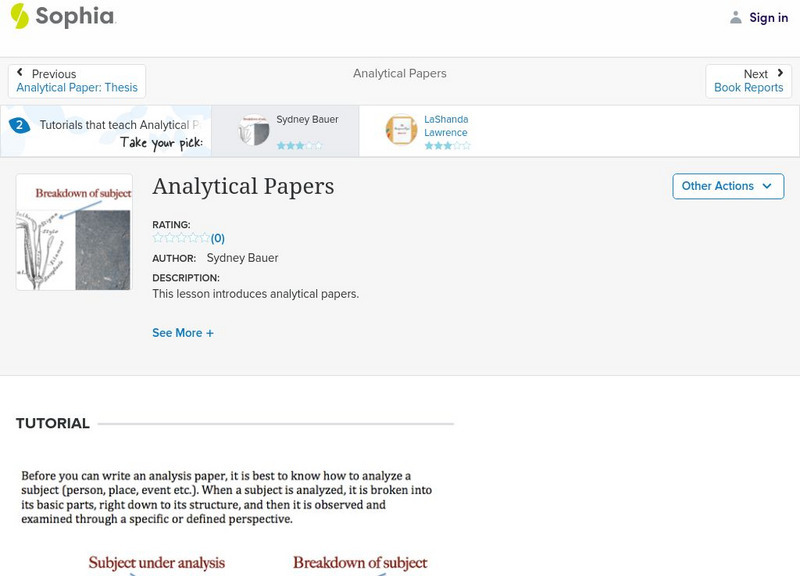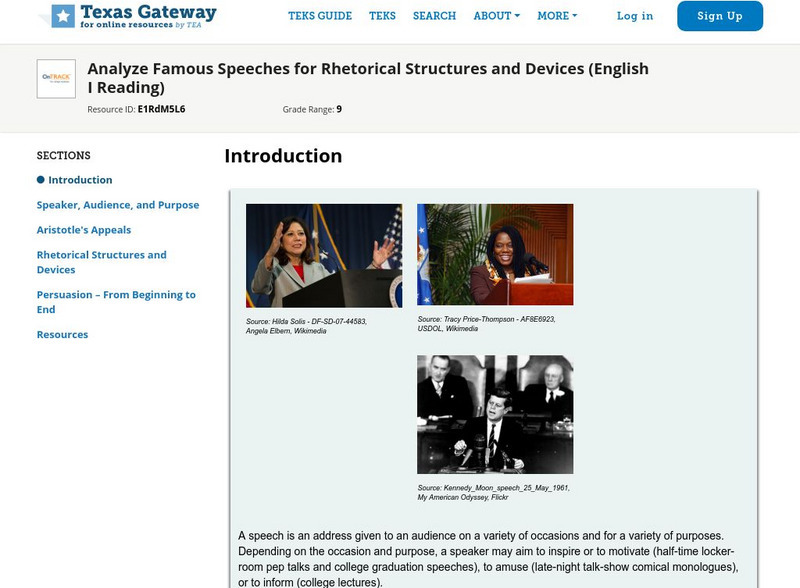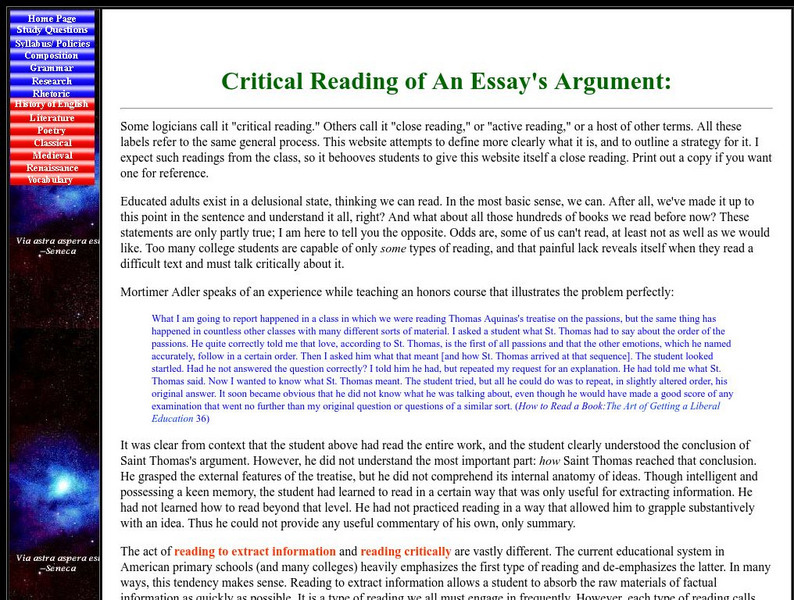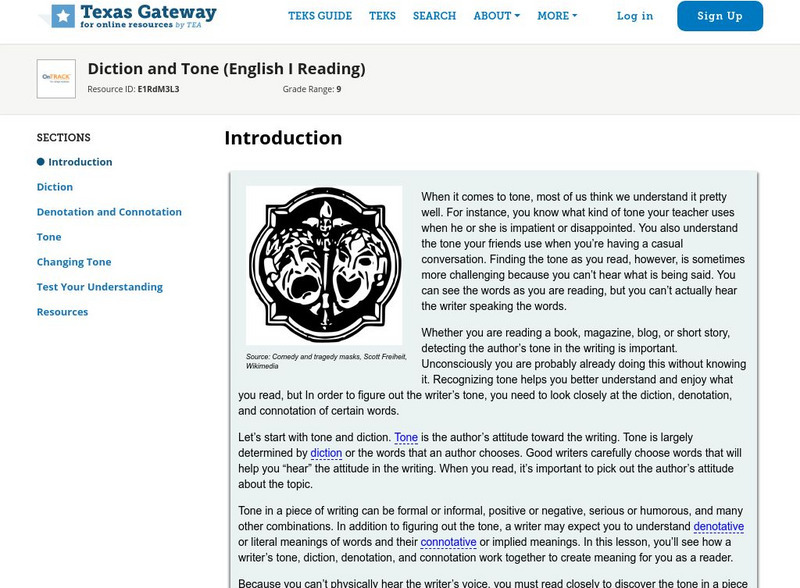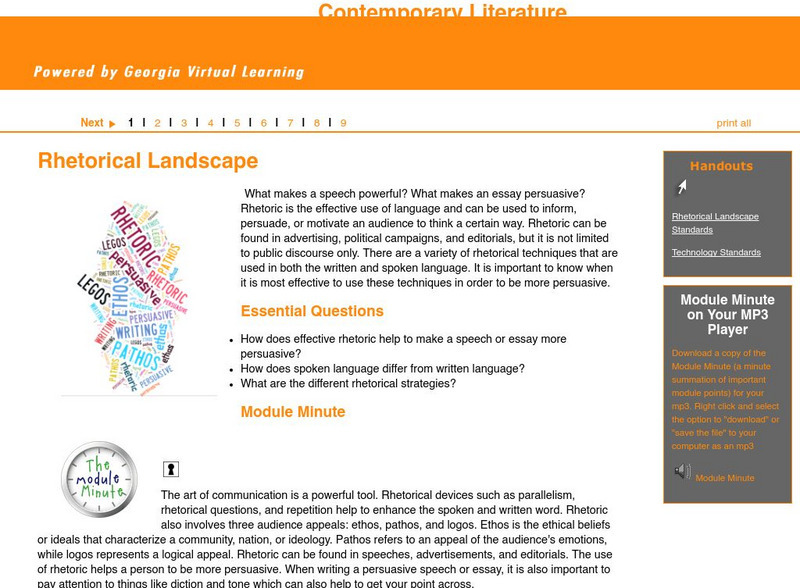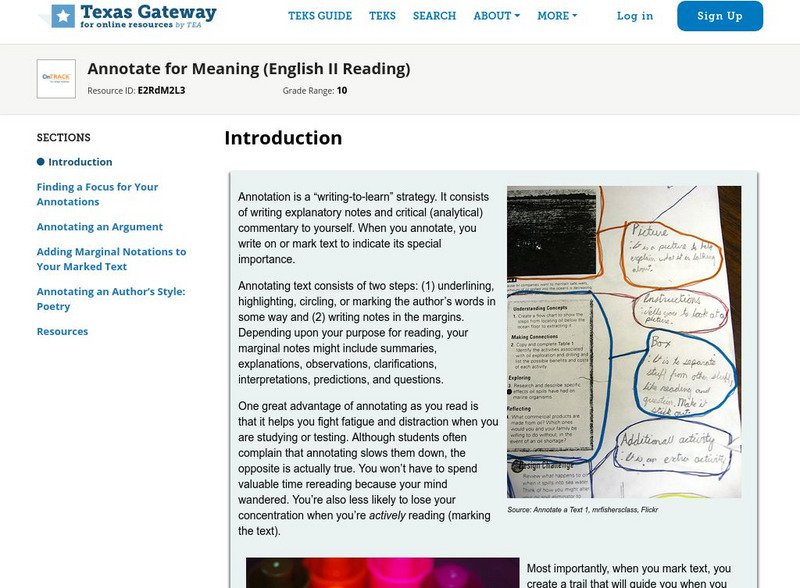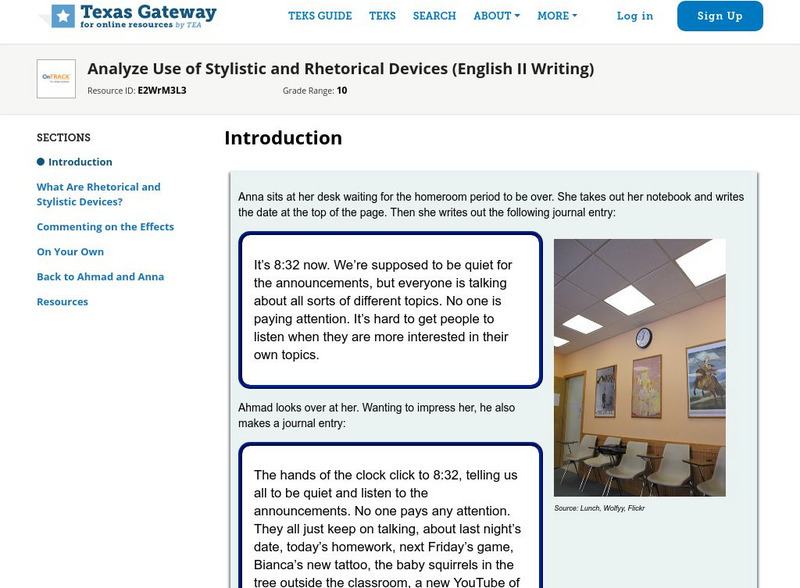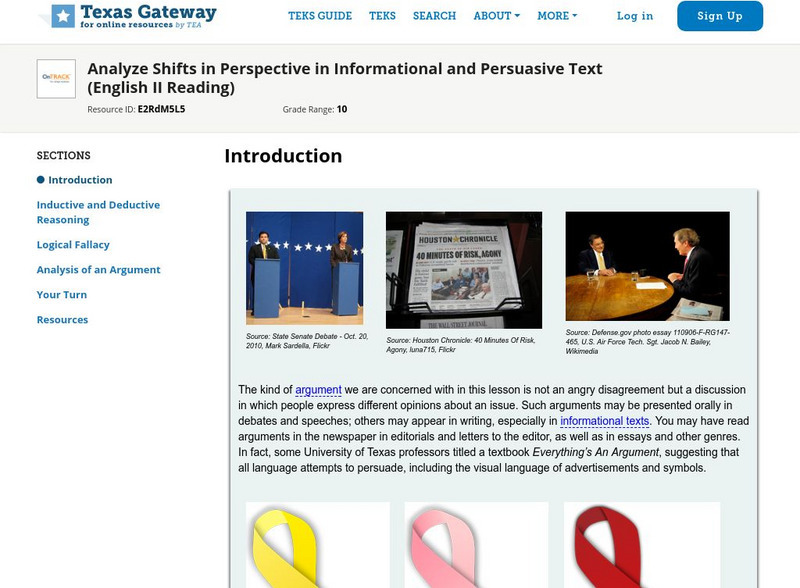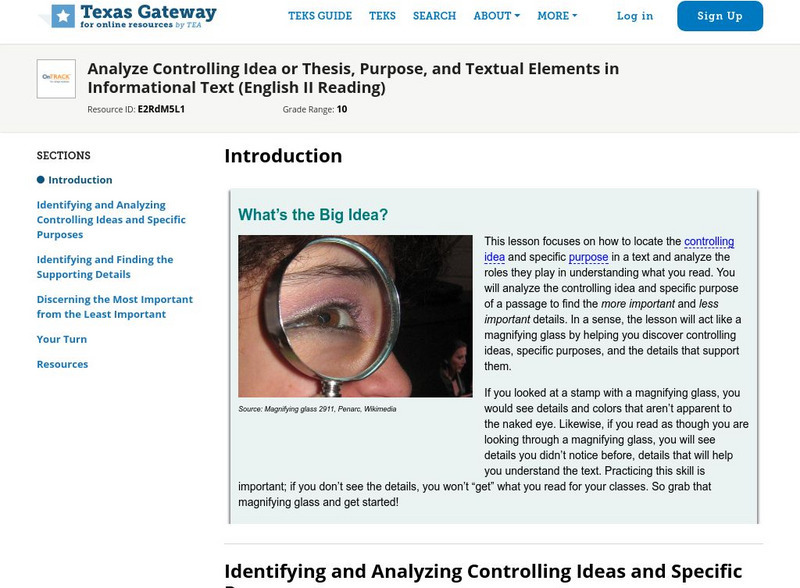Curated OER
Charles Darwin Meets John Paul II
If you teach AP English language and composition and are looking for a way to address the differences between written and spoken arguments, consider this lesson. Over the course of three days, class members research Charles Darwin or...
Curated OER
The Final Word
Although this lesson is based on “Final Word,” Craig Wilson’s USA Today column, the strategies could be adapted to any local columnist. After reading three articles independently, groups share observations about content and style used by...
Walters Art Museum
The Symbolism of Allegorical Art
Introduce learners to allegorical art with four bronze sculptures by Francesco Bertos. After modeling how to recognize bias and allegory in Bertos' Africa, class groups examine the other three sculptures in the series before creating...
English Enhanced Scope and Sequence
Identifying Persuasion in Media Literacy
As part of a study of media literacy, groups examine advertisements from Money, Fortune, The New Yorker, or Good Housekeeping and identify the types of rhetorical appeals used in the ads. After groups present their findings, the whole...
Curated OER
Speech in the Virginia Convention
“. . .different men often see the same subject in different lights. . .” but the great orator Patrick Henry used all the skills at his command to craft a speech to convince listeners to see things as he did--that liberty was worth dying...
Georgia Department of Education
Ga Virtual Learning: Visual Essay [Pdf]
This PDF is a visual essay assignment in which students create a visual presentation of a choice of poems read previously. It must be planned, organized, and created in such a way that it reflects the meaning of the poem.
Polk Brothers Foundation Center for Urban Education at DePaul University
De Paul University: Center for Urban Education: History Thinker: Analyze Then Summarize [Pdf]
This Center for Urban Education resource provides a downloadable instructional activity. Students will read about a historical event and answer scaffolded questions that will help them retell what happened, explain the causes and...
Indiana University
Iu: Providing Students With a Purpose for Reading
Discussion of providing students with a purpose for reading from a college class site entitled "Advanced Study of the Teaching of Secondary School Reading." Along with discussion and background on the topic, some specific strategies are...
Sophia Learning
Sophia: Purpose
This slideshow lesson focuses on purpose; it defines purpose and lists the two main purposes of all writing: to educate (didactic text meaning to inform and instruct) or to entertain (imaginative text). The purpose could also be art for...
Sophia Learning
Sophia: Analytical Papers
This lesson focuses on analytical papers; it explains how to analyze a subject and the goal of analytical papers. They must include a defined or specific perspective from which to evaluate, an evaluation, and the breakdown of the...
Media Smarts
Media Awareness Network: Lesson Plan: How to Analyze the News [Pdf]
Lesson plan focusing on the importance of understanding how the news is a product with a specific scope, structure, slant and style at the forefront of its production.
Texas Education Agency
Texas Gateway: Analyze Famous Speeches for Rhetorical Structures and Devices
In this instructional activity, you will learn to analyze persuasive speeches and examine the impact of rhetorical structure and the use of devices in famous speeches. It includes activities such as matching quotes from famous speeches...
Other
Carson Newman College: Critical Reading of an Essay's Argument
Extensive examination of what it means to critically read an argument. This process is sometimes called "critical reading," or "close reading," or "active reading." First the differences between reading to extract information and reading...
Sophia Learning
Sophia: Critical Reading as a Learning Strategy
This tutorial focuses on critical reading using a downloadable PowerPoint presentation, "Critical Reading 101," which includes separating fact from opinion, 6 propaganda techniques, and 6 common fallacies in reasoning. Also provided is...
Texas Education Agency
Texas Gateway:diction and Tone (English I Reading)
In this learning module, the user will learn and apply the concepts of tone and diction. Tone is the author's attitude toward the writing. Tone is largely determined by diction or the words that an author chooses.
Texas Education Agency
Texas Gateway: Analyze Clarity of Objectives of a Procedural Text
[Accessible by TX Educators. Free Registration/Login Required] In this lesson, students will learn how to analyze writing in software, warranty, and consumer manuals or publications.
Texas Education Agency
Texas Gateway: Analyze Thesis, Purpose, Textual Elements in Informational Text
[Accessible by TX Educators. Free Registration/Login Required] This lesson focuses on how to locate the controlling idea or thesis and specific purpose in a text and analyze the roles they play in understanding what you read. You will...
Georgia Department of Education
Ga Virtual Learning: Contemporary Literature: Rhetorical Landscape
This is an introduction to a unit on the use of rhetoric in speaking or writing to persuade an audience to the desired way of thinking or action. If focuses on rhetorical techniques and the three audience appeals: ethos, pathos, and logos.
Texas Education Agency
Texas Gateway: Annotate for Meaning (English Ii Reading)
This lesson focuses on annotating text to aid in understanding of the text including annotating an argument and poetry. It also provides tools and techniques for marking text.
Texas Education Agency
Texas Gateway: Analyze Use of Stylistic and Rhetorical Devices
[Accessible by TX Educators. Free Registration/Login Required] In this lesson, students are going to learn to comment on writing composed by writers who are aesthetic types, writers who use language to bring images to our minds as we...
Texas Education Agency
Texas Gateway: How to Read and Analyze an Essay (English Iii Reading)
[Accessible by TX Educators. Free Registration/Login Required] In this lesson's activities, you will determine the purpose of description, narration, and exposition essays, analyze their literary devices, and examine text features. You...
Texas Education Agency
Texas Gateway: Analyze Use of Stylistic a Rhetorical Details
[Accessible by TX Educators. Free Registration/Login Required] In this lesson, you are going to learn to comment on writing composed by writers who are aesthetic types, writers who use language to bring images to our minds as we read....
Texas Education Agency
Texas Gateway: Analyze Shifts in Perspective in Informational & Persuasive Text
[Accessible by TX Educators. Free Registration/Login Required] In this lesson, you will read informational texts and identify varying perspectives in different arguments on the same topic. You will also analyze the reasoning and the...
Texas Education Agency
Texas Gateway: Analyze Controlling Idea or Thesis, Purpose, and Textual Elements
[Accessible by TX Educators. Free Registration/Login Required] This lesson focuses on how to locate the controlling idea and specific purpose in a text and analyze the roles they play in understanding what you read. You will analyze the...





![Ga Virtual Learning: Visual Essay [Pdf] Rubric Ga Virtual Learning: Visual Essay [Pdf] Rubric](https://static.lp.lexp.cloud/images/attachment_defaults/resource/large/FPO-knovation.png)

